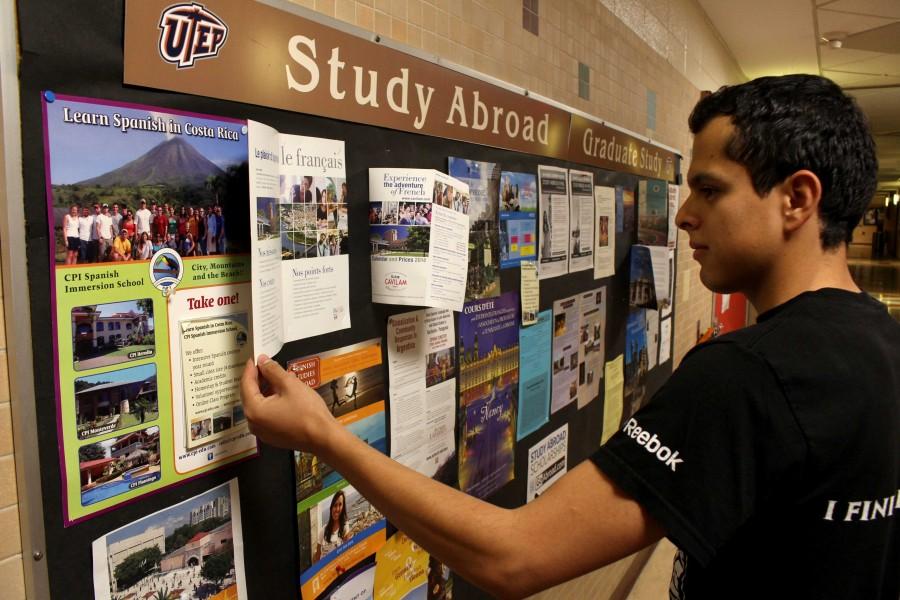Just like this year’s Homecoming theme, “UTEP Goes Global,” the university’s Office of International Programs and Study Abroad (OIPSA) made it its mission to diversify the campus and recruit students from other countries to share their knowledge and culture.
Being right at the border, UTEP prides itself on promoting acceptance and diversity. As one walks around campus, they may notice some of the nearly 2,000 international students currently enrolled at the university.
Among them are students from all around the world, ranging from the neighboring city of Ciudad Juárez to students from other countries in Latin America, Asia and Southeast Asia.
Dania Brandford-Calvo, executive director of OIPSA, said there are many positive effects in recruiting international students, both philosophical and practical.
“Philosophically, it builds cultural bridges, adds to the intellect wealth on the campus, contributes to cultural diversity and introduces other worldviews,” Brandford-Calvo said. “Practically, it increases the pool of paying applicants, builds relationships between UTEP and international educational systems and establishes relationships between UTEP and foreign governments.”
Juan Pablo de Anda de Alva, a freshman majoring in digital media production and an international student from Ciudad Juárez, believes that having international students on campus is important because it introduces a sense of curiosity in others who might be interested in learning a different culture.
“Having cultural diversity on campus is of extreme importance because this is how students acquire a broader understanding of how different we are from one another,” de Anda de Alva said.
It also helps bring international and cultural perspectives into the university’s classrooms.
“International students are recognized by host countries as contributing with different skills, new innovations and patents in their field of study,” Brandford-Calvo said.
However, having international students at UTEP is not only beneficial to the university.
Brandford-Calvo said international students “contribute to the labor market by holding specialized jobs” and help boost the U.S. economy.
For students interested in applying, the process is much like any other Texas public university, requiring students to apply to the university, submit official high school or college transcripts and entrance exam scores. The difference is they must also secure immigration documents to obtain a student Visa.
“We provide cultural programs that identify the strength in recognizing differences and similarities and share salient aspects of the bicultural Mexican-American experience,” Brandford-Calvo said about what makes UTEP different from other international programs.
Sandra Navarrete, a senior majoring in accounting and finance from Cancún, Quintana Roo, Mexico, agrees that UTEP is one of the most welcoming universities for international students.
“My experience at UTEP has been incredible,” Navarrete said. “I’ve been able to meet extraordinary individuals, have made incredible friends and have had the opportunity to learn from wonderful professors.”
Navarrete was also able to find a unique program that allowed her to study at UTEP.
“They have the PASE program for Mexican students to pay in-state tuition which made going to a university in the United States a lot more affordable,” Navarrete said.
Even with its already diverse campus, UTEP wants to increase the international student population and establish itself as an “educational hub” for Latin America, South and Southeast Asia.
Until recently, the emphasis has been to recruit students from Mexico, however, OIPSA hopes to expand recruitment from other Latin American countries, such as Bolivia, Brazil, Chile and Costa Rica, and Asian countries like India, Indonesia, South Korea and Malaysia.
“A plan that has been submitted for approval … (that) continues UTEP’s commitment to providing opportunities to students from Mexico, as well as proposes to expand recruitment efforts,” Brandford-Calvo said.
Paulina Spencer may be reached at [email protected]











